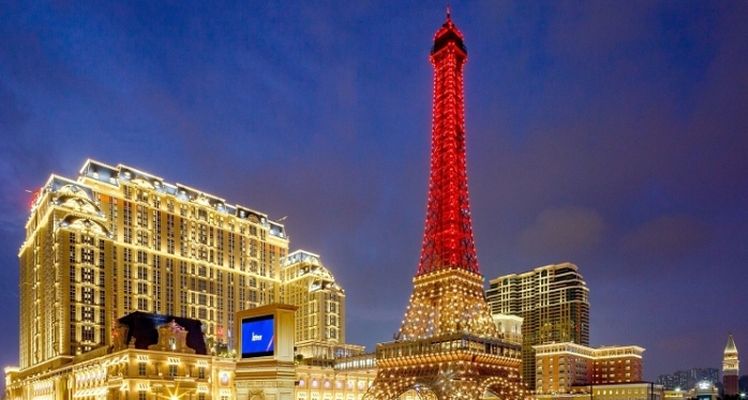December marked the fifth month in a row that Macau’s gambling economy showed year-on-year increases, but the first seven months of the year still tanked the annual numbers making 2016 the third consecutive year of overall decline.
Government data released Sunday showed a 3.3 percent decline to 223.2 billion patacas ($28 billion) for 2016, but with five months of consecutive upward correction in a row, the outlook is good for a sustained recovery.
More mass gaming traffic is being seen and overall tourist numbers are up according to other government and industry reports. Non-gaming revenue hit 9.39 percent in 2015, the last year numbers were available from the Macau the statistics department.
More people are flying in fewer aircraft as well, another sign of middle class and mass gaming visits with 14 percent more passengers on a 2 percent aircraft visit rise for 2016 counting 6.6 million passenger movements in and out of the gambling and recreation hub. Overnight visits are increasing as well.
Analyst Grant Govertsen, managing director of Union Gaming Asia, pointed to a steady recovery in a note reported on January 2: “We’ve seen gross gaming revenue per day increase every month, sequentially, starting in June. So July was a little bit better than June, August was better and so forth,” according to a report on Macau TDM.
Casino openings in late 2016 including The Parisian Macao and Wynn Palace Cotai helped buoy the rise with MGM Cotai expected to open in 2017 and SJM’s Grand Lisboa Palace slated for 2018. There is also the possibility of a VIP revival if The 13 decides to apply and receives a gambling license from an existing concessioner.
Studio City opened in October 2015 but infrastructure and transportation problems have caused a slow ramp up for that property.
Most analysts say we have seen the bottom of Macau’s economy. Fitch said in a December note that, “Macau gaming, now firmly at the bottom of the cycle, has better long-term prospects given investments in new supply, improvements in mass market indicators and under-penetration of gaming throughout the rest of Asia,” according to Reuters.
However, the recovery faces competition from other Asian gaming centers who have built VIP business during Beijing’s crackdown on Macau amid a struggling overall Chinese economy. Macau is a special administrative district, much like Hong Kong, and is the only legal place for China’s robust population to gamble legally. Current competition for Chinese gambling dollars includes Saipan with nearly eight times the rolling chip turnover per table, the Philippines with Okada Manila joining two other integrated resorts on December 30, Cambodia, and South Korea. In several years Japan may also present a formidable challenge, having recently taken the first step toward legalizing casinos there.



